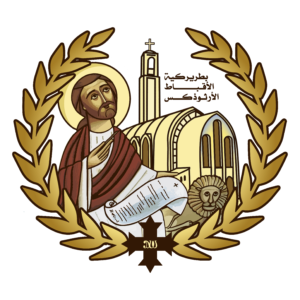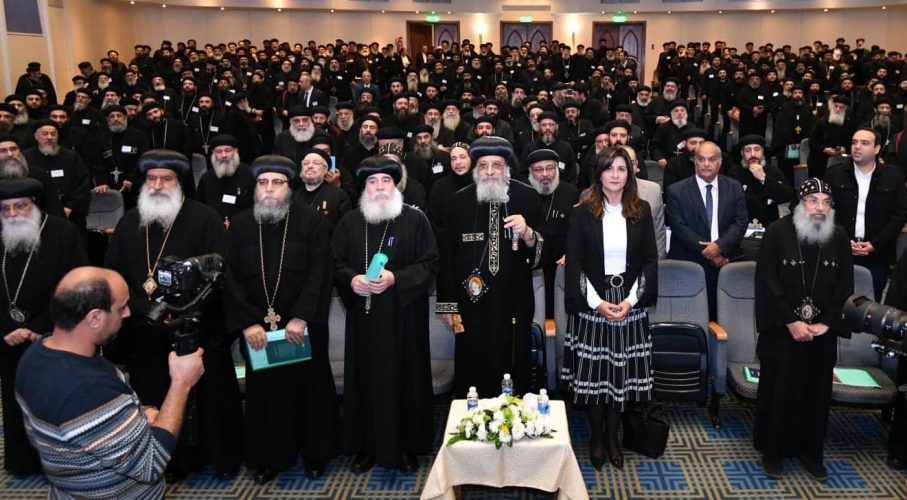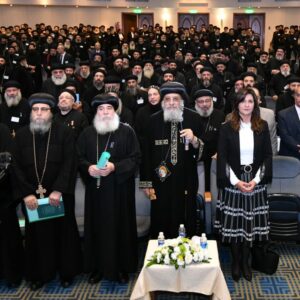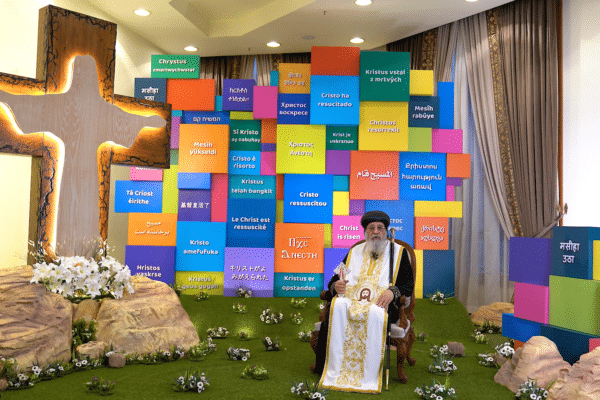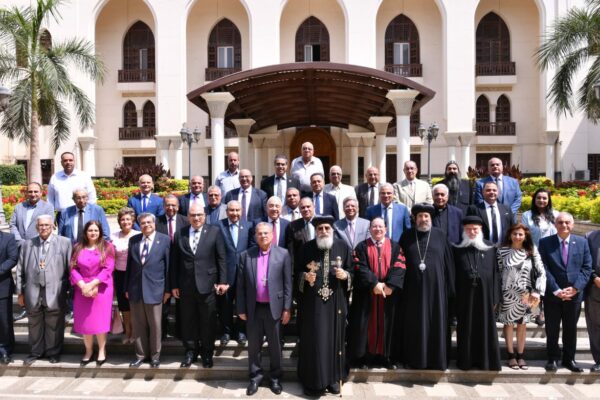Today, Thursday, His Holiness Pope Tawadros II held the annual meeting with the social welfare priests in the dioceses of Banha, Quesna, Shoubra El-Kheima, Shebin El-Qanater, Helwan, Central Giza, North Giza, Atfih, Tamouh, 6th of October, and Osim, Fayoum, Beni Suef, Baba and Al-Fashn, total of 12 diocese.
Father Bishoy Charles, Secretary of the Social Welfare Service, welcomed the attendees at the beginning of the meeting, followed by an explanation given by Father Antonios Sobhy of the system and steps for establishing the Office of Development and Social Welfare in the dioceses.
Father Louka Maher spoke about the vision of work in the Social Welfare Secretariat, in addition to what has been accomplished so far in the Social Welfare Service, and about the “Educate Your Son,” “The King’s Daughter,” and “Blessing Bag” programs.
Meanwhile, Ambassador Nabila Makram, Chair of the Board of Trustees of the Fahem Foundation for Psychological Support, spoke about the vision that governs the Foundation’s work, which is to direct society’s attention to the importance of psychological support for others, and to spread and consolidate the culture of understanding the “suffering” person and respecting his pain.
While Dr. Amira Tawadros, Director of the Demographic Center, Ministry of Planning and Development, spoke about the Egyptian Family Development Project launched by His Excellency President El Sisi in 2020.
A short film was also shown about the “Educate Your Son” project, where at the end of the meeting, the outstanding students in the secondary education who participated in the project, and the bishops of the dioceses to which the outstanding students belong, were honored.
In his speech, His Holiness the Pope thanked the attendees and speakers, and spoke about three warnings that the social care priest must pay attention to, which are:
1- Poverty of thought: That is, the priest is not good at thinking, acting, or creating, which is what is treated by reading and exchanging experiences.
2- Neglecting data: Data is important because it reveals reality to us and thus we can deal with it, treat and meet needs.
His Holiness stressed the need to be at the service of a specialized person specialized in data responsibility.
His Holiness pointed out that the priest is responsible for leading those in need and elevating them through three stages:
A.Subsistence stage: that is, the family’s needs are met at a minimum.
B. Sufficiency stage: that is, the family’s needs are adequately met without any deficiency.
C. Efficiency stage: that is, the family’s needs are fully met and there is an appropriate surplus.
3- Pay attention to preserving the dignity of the priesthood:
That is, to complete your service to the fullest without compromising the dignity of your priesthood.
His Holiness announced financial support, as a first stage, that will be provided to 30 diocese through the bishopric of services, provided that this support is directed to the sub-development office of the diocese in favor of financing small projects.
This page is also available in:
العربية
